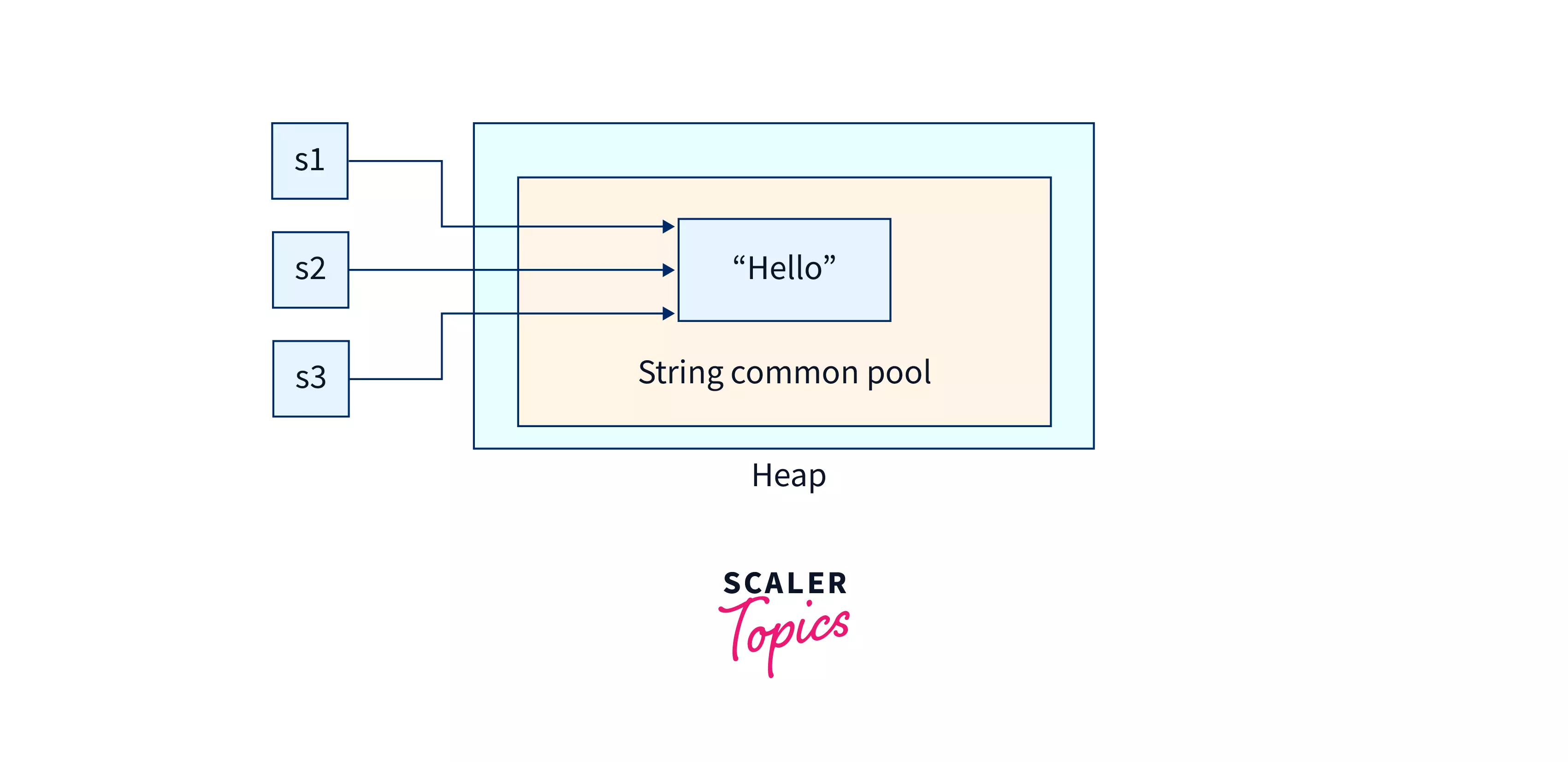Why Are Strings Immutable in Java? Protection and Performance Benefits
Why Are Strings Immutable in Java? Protection and Performance Benefits
Blog Article
What Is Unalterable Strings and Just How It Works
In the realm of programs, comprehending the principle of immutable strings is paramount for creating secure and robust applications. Immutable strings describe strings that can not be altered after they are created, guaranteeing data integrity and predictability within the code. This essential concept plays a vital function in different programs languages and offers a distinct strategy to taking care of data. By discovering the details of just how unalterable strings operate, one can reveal a world of benefits and possibilities that can boost the top quality and performance of software program advancement.
The Essentials of Immutable Strings
Immutable strings, as a fundamental principle in programs, are personality series that can not be transformed as soon as they are produced. This suggests that as soon as a string is appointed a worth, that worth can not be modified. In languages like Python and Java, strings are unalterable objects, leading to different ramifications in regards to memory monitoring and data honesty.
One of the key advantages of unalterable strings is that they give a feeling of safety in data manipulation. Considering that the web content of an immutable string can not be customized, it ensures that the original information stays undamaged, minimizing the risk of unexpected modifications throughout program implementation (Why are strings immutable in Java?). This building likewise streamlines debugging processes, as designers can rely on that when a string is defined, its worth will not be unintentionally modified
When a new string is created based on an existing one, instead than modifying the original string, the new value is kept individually. On the whole, understanding the fundamentals of unalterable strings is vital for mastering programs concepts and enhancing code effectiveness.
Advantages of Immutable Strings
Structure upon the security and effectiveness advantages of immutable strings, their advantages reach boosting code integrity and streamlining concurrent shows tasks. By being unalterable, strings can not be modified after production, which gets rid of the danger of unintended changes in the data they save. This fundamental immutability makes certain that as soon as a string is created, its value continues to be consistent throughout the program's execution, minimizing the possibilities of insects triggered by unexpected changes.
Additionally, unalterable strings contribute to code integrity by making it simpler to reason regarding the state of a program. Since strings can not be transformed, designers can rely on that a string will certainly always hold the exact same worth, simplifying debugging and upkeep efforts. This predictability results in more secure and reliable codebases.

Application in Programming Languages
Within various shows languages, the unification of immutable strings is a fundamental facet that affects just how information is managed and adjusted within code structures. The execution of immutable strings differs throughout various programming languages, with each language using its very own devices to sustain this concept.
In contrast, languages like C and C++ do not have built-in support for unalterable strings. Developers in these languages have to manually apply immutability by enforcing policies within their code to prevent direct adjustments to string things.
Finest Practices for Dealing With Immutable Strings
When managing immutable strings in programming languages like Java and Python, adhering to ideal techniques guarantees protected and efficient data control. Among the key finest methods is to utilize StringBuilder or StringBuffer instead of directly adjusting strings, particularly when taking care of considerable concatenation operations. These classes supply mutable choices for string adjustment, aiding to stay he said clear of unnecessary memory allotments and enhancing efficiency.
Additionally, when working with sensitive information such as passwords or API keys, it is critical to stay clear of storing them as simple message in unalterable strings. Utilizing safe storage devices like char varieties or specialized collections for managing sensitive information assists reduce safety risks associated with immutable strings.
Real-world Applications and Instances
Checking out practical executions of unalterable strings in various markets reveals their significant influence on data honesty and system reliability. In the health care field, unalterable strings play an essential role in making certain the safety and privacy of client information. By stopping unauthorized adjustments to delicate information such as clinical documents and prescriptions, unalterable strings help keep compliance with stringent privacy policies like HIPAA.
Financial institutions likewise gain from the immutable nature of strings to improve the protection of customer data and transaction records. Immutable strings aid prevent scams and unapproved changes to financial info, giving from this source a robust protection versus cyber risks and making certain the trust fund and confidence of customers.

Final Thought
Finest practices for functioning with immutable strings include avoiding direct adjustments and using approaches that return brand-new string things. Real-world applications of unalterable strings consist of information security, caching, and string adjustment tasks.
Immutable strings refer to strings that can not be changed after they are created, ensuring information integrity and predictability within the code. When a new string is created based on an existing one, rather than changing the original string, the new worth is saved independently.In languages like Java and Python, strings are unalterable by default, meaning that once a string things is developed, its value can not be changed - Why moved here are strings immutable in Java?. Finest techniques for functioning with immutable strings consist of preventing straight adjustments and making use of techniques that return new string objects. Real-world applications of immutable strings include information security, caching, and string manipulation tasks
Report this page